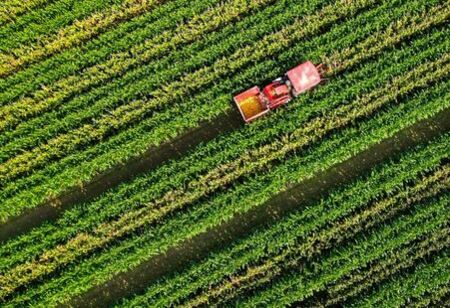
Syngenta Group to Increase its Sales, Service Networks in China to Meet Sustainability, Food Security Goals


One of the biggest agricultural technology companies in the world, Syngenta Group, plans to increase its sales and service network in China by two-thirds in four years as the country works to meet its goals for sustainability and food security.
As of right now, there are just over 600 "modern agricultural platform" service centers in the nation; by 2028, the company hopes to have 1,000 of these centers operating, according to Petra Laux, chief sustainability officer of the Basel, Switzerland-based corporation.
China needs to significantly raise farming production through technology, including genetically modified seeds and cutting-edge crop protection technologies, due to its limited land and water resources and desire to increase food self-sufficiency.
In a report released in April, China's Ministry of Agriculture and Rural Affairs projected that by 2033, 92 percent of staple food crops would be self-sufficient, with annual production growth of 1.1 percent outpacing consumption growth of 0.3 percent.
The analysis also showed significant decreases in grain imports by 75 percent to 6.8 million tonnes of corn, 60 percent to 4.85 million tonnes of wheat, and 21 percent to 78.7 million tonnes of soybeans by 2033 compared to the previous year.
The estimates are in line with President Xi Jinping's objectives, which were announced last year, for the country to modernize its agriculture by 2035 and establish itself as a major player in the sector by the middle of the century.
Improved farming practices are critical for the world as a whole, not just for China. The United Nations projects that by 2057, there will be more people on the planet than there are people on Earth. In order to keep global warming to less than 2 degrees Celsius, the whole community must simultaneously become carbon neutral.
More than 100,000 farmers in China could be reached through Syngenta's 600 training and support centers as well as its mobile app, the company claims.
In addition to purchasing equipment, seeds, insecticides, herbicides, fertilizer, and other agricultural supplies from Syngenta and its partners, they could also learn about sustainable and effective farming methods that are tailored to the soil and crops of their farms.
Crop rotation, the use of farming inputs based on evidence, no-till farming, and the planting of cover crops are examples of sustainable farming techniques. These methods aid in lowering carbon emissions, runoff of fertilizer, soil erosion, water loss, and loss of soil biodiversity.
Of the 3,860 mainland farmers surveyed by Syngenta last year, 56 percent reported having received training at one of the company's service centers. Furthermore, compared to individuals who had not received training, those who implemented the techniques they learned there saw yield increases of 8 to 15 percent. According to the corporation, they also used herbicides, fertilizer, and water 26–30 percent more efficiently.

